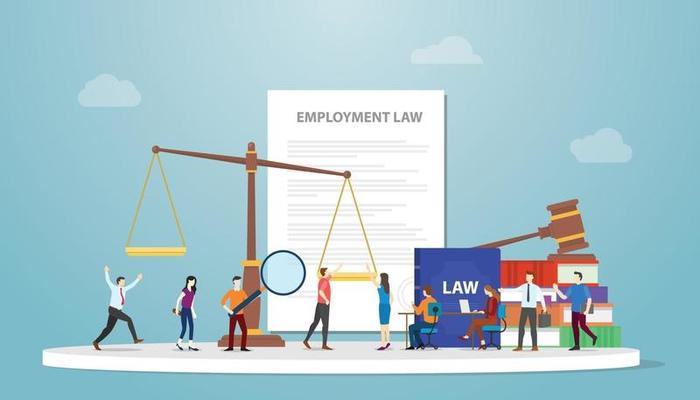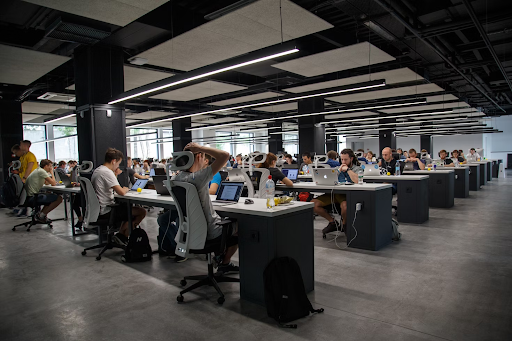Workplace safety extends beyond the four walls of an office or factory floor. Sometimes, employees get injured while performing work-related tasks outside the company premises.
One common yet unexpected scenario involves forklift accidents on third-party properties. These happen a lot in areas with multiple operations. People might get hurt while crossing such sites. Even if the employee is hurt by a third party, they will need support from their HR.
In simple words, HR plays a crucial role in supporting the injured employee, helping them recover and secure the compensation they deserve. So, where does HR start? Well, worry not.
In this article, we’ll explore the key steps HR can take to support their employees effectively. Thus ensuring they feel cared for and empowered throughout their recovery journey.
Let’s get started!
Initial Support and Understanding the Employee’s Needs
Immediate Communication
The first step HR should take after learning about an employee’s injury is to reach out promptly. This quick contact reassures employees that they’re not alone and shows that the company supports them. A simple call or message asking about their well-being and offering initial assistance goes a long way in building trust and comfort during a challenging time.
Assessing Needs
After reaching out, HR should assess the employee’s specific needs. Is the injury physical, emotional, or a combination of both? Do they need help with medical appointments, therapy, or work modifications? Getting an understanding of their situation helps HR determine what resources are necessary.
Connecting the Employee with a Forklift Accident Lawyer
Since the accident occurred on someone else’s property, the employee may be eligible for compensation under tort law, unlike typical workplace injuries covered by workers’ compensation. HR should help the employee understand their rights to seek fair compensation for medical bills, lost wages, and pain and suffering through a personal injury claim.
Navigating the legal aspects of an external injury can be complex, especially if liability is unclear. A specialized forklift accident lawyer can be invaluable in proving negligence, securing a fair settlement, and handling legal proceedings so the employee can focus on recovery.
Referring the employee to a trusted lawyer familiar with third-party injury cases eases their burden and improves their chance of fair compensation. HR’s support in this process is essential, especially if the employee is unsure where to start with legal help.
Assisting with Medical and Leave-Related Requirements
Facilitating Medical Leave
One of HR’s primary responsibilities is to help the employee understand their options for medical leave. Whether it’s short-term disability, the Family and Medical Leave Act (FMLA), or company-specific leave policies, HR should walk the employee through the process.
They should explain eligibility, leave duration, and any necessary documentation. The HR should ensure the employees have the time to recover without worrying about job security. It is vital for the employee’s peace of mind.
Arranging Accommodations
When the employee is ready to return to work, they may need temporary accommodations depending on their injury. For example, they may need flexible hours and remote work options. Likewise, you may modify their responsibilities to ease their transition back to work.
HR should be prepared to offer these accommodations to ensure the employee’s comfort and prevent any additional strain or stress.
Providing Emotional and Mental Health Support
Offering Access to Counseling Services
Recovering from an accident can be mentally challenging, especially if the injury has lasting effects. HR should encourage employees to use mental health support, such as the Employee Assistance Program (EAP) or external counseling services, to help manage trauma and stress.
Creating a Supportive Environment
A supportive work environment aids recovery. HR can foster this through open communication and regular check-ins, showing employees they’re valued and supported throughout their recovery journey.
Managing Legal and Documentation Requirements
Documenting the Incident and Support Provided
Accurate documentation, including medical leave, accommodations, and communication records, is crucial for tracking HR’s support throughout the employee’s recovery. This documentation ensures compliance with company policies and legal requirements, creating a clear record of assistance.
Coordinating with Legal Teams
HR may work with the legal or compliance team to ensure all documentation and support meet relevant laws, especially if third-party liability is involved. This collaboration helps protect both the employees and the company’s interests.
Assisting with Third-Party Communication
If third parties, like property representatives or insurance adjusters, reach out, HR should guide the employee, advising them to consult their lawyer before discussing accident details.
Wrapping Up!
HR plays an invaluable role in supporting employees injured in external forklift accidents. From arranging medical leave and counseling to legal guidance and return-to-work planning, HR’s proactive assistance makes all the difference. By showing compassion and providing practical support, HR helps foster a positive workplace that values employee well-being, even in tough situations.
Guest writer.


























